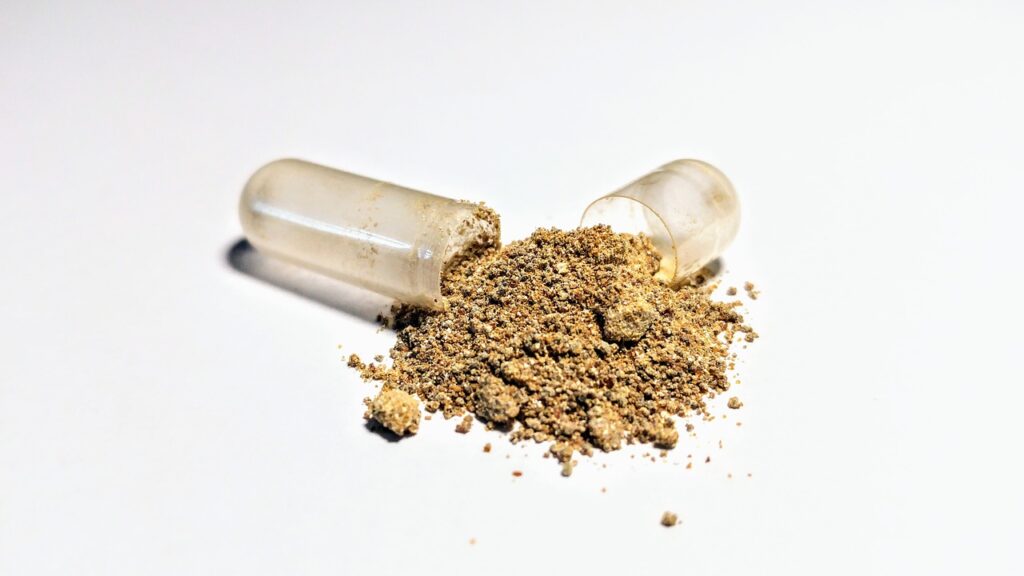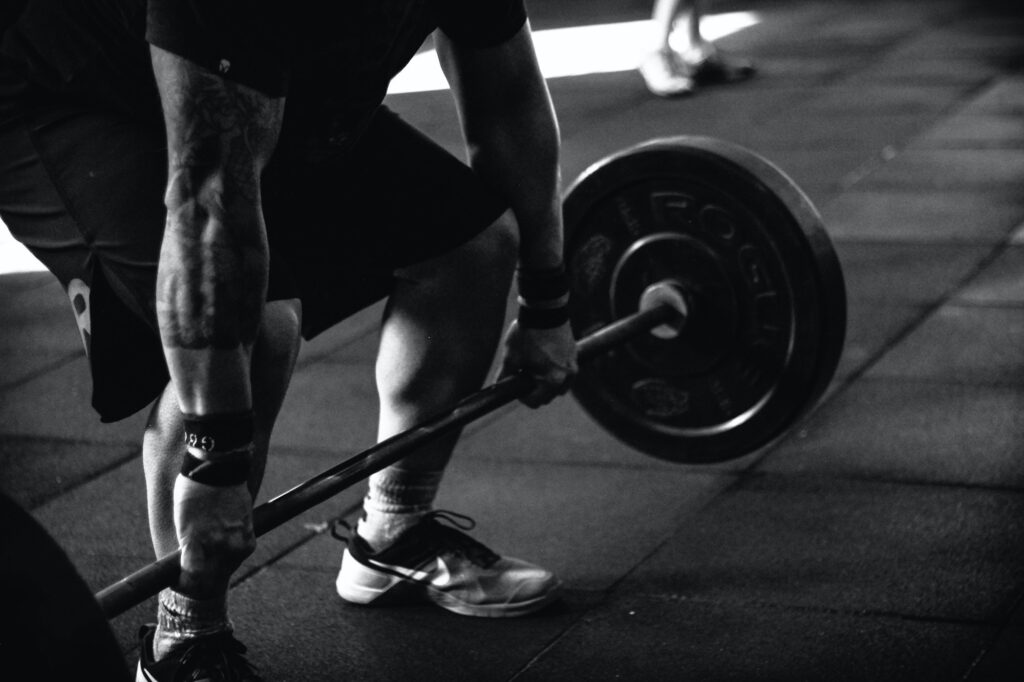Hailed as a potent herb in the realm of Ayurveda, Ashwagandha has transcended boundaries and made a grand entrance into the world of modern fitness and strength training. You might have come across it while searching for supplements to enhance your fitness journey.
In this article
In the weightlifting community, Ashwagandha has taken the spotlight due to claims of enhanced performance and impressive muscle growth.

Ashwagandha, despite its complex biological effects and benefits, is not a magic bullet. It is a tool—one that could be particularly beneficial for weight lifters looking to improve their performance and recovery. This article will delve deep into Ashwagandha’s role in weightlifting, shedding light on everything from its historical use to the latest research findings.
What is Ashwagandha?
Ashwagandha, also known as Indian ginseng or winter cherry, comes from a small shrub native to India and North Africa. It’s classified as an adaptogen, which means it helps your body handle physical and mental stress. In fitness terms, this can translate to improved recovery times and stress management.
Although ashwagandha is part of the nightshade family, just like foods such as potatoes and tomatoes, its usage differs significantly. The roots of ashwagandha are often used in powdered form in traditional Indian medicine for a variety of potential health benefits.
The leaves, seeds, and fruit also have uses, but the root is definitely the most commonly used part. Ashwagandha supplements are typically sold in capsule form, and the plant’s roots are often used in teas and tinctures.
What are the benefits of Ashwagandha?
People use Ashwagandha for various fitness-related reasons, including boosting energy, reducing fatigue, and improving strength. It’s been associated with increased muscle mass and strength, making it a popular choice among athletes and bodybuilders.
Plus, it’s been suggested that this herb might reduce body fat and enhance overall body composition.
Another great advantage is that Ashwagandha can potentially help with sleep quality – a critical factor when it comes to fitness and recovery.
Good sleep is fundamental for muscle recovery and growth, maintaining a healthy weight, and improving athletic performance.
In a study of 57 men doing resistance training, those taking 300mg of Ashwagandha root extract twice daily exhibited significantly greater increases in muscle strength on the bench press and leg-extension exercises (1). They also showed substantial increases in muscle size in the arms and chest.
A systematic review and meta-analysis of 13 studies also concluded that Ashwagandha supplementation effectively improves physical performance, including aspects of strength, cardiorespiratory fitness, and recovery, more than a placebo in both men and women (2).
How can ashwagandha be beneficial for building muscle?
Ashwagandha offers several benefits to weightlifters, primarily by modulating stress and influencing muscle development. This is achieved through its effects on key hormones in the body, namely cortisol, and testosterone.
Cortisol Reduction
Cortisol, known as the “stress hormone,” rises during times of stress, potentially hindering muscle growth. Excessive cortisol levels can lead to muscle breakdown, disrupting the anabolic state needed for muscle building. Ashwagandha has been studied for its ability to lower cortisol levels, promoting a stress-reduced environment that supports muscle growth (3).
Testosterone Boost
Testosterone is a hormone critical to muscle development. It aids in muscle recovery and growth, and higher levels in the body generally lead to better muscle gains. Ashwagandha has been found to boost testosterone levels, thereby further supporting muscle recovery and growth. In studies, daily intake of ashwagandha resulted in an increase in testosterone levels by 13-41% (4).

Enhanced Recovery
Beyond hormone regulation, ashwagandha is believed to improve the body’s overall resilience, helping it recover from physical stressors, like intense workouts. As a result, it may contribute to better workout performance and faster recovery times.
Should you take Ashwagandha?
Ashwagandha has shown numerous potential benefits in various studies regarding muscle growth, exercise performance, recovery, and reducing exercise-induced muscle damage and inflammation.
However, while the existing data is promising, further research is still necessary to conclusively understand the scope of ashwagandha’s benefits, optimal dosage, long-term safety, and possible interactions with other substances.
The potential of ashwagandha to enhance athletic performance still makes it an interesting supplement for athletes, bodybuilders, or fitness enthusiasts aiming to optimize their results
So, while Ashwagandha could potentially enhance your training results, it’s essential to approach its use wisely and they should not replace the fundamental pillars of bodybuilding: a well-structured and periodized training program, a well-balanced and nutrient-rich diet, adequate rest and recovery, and good hydration.
Frequently asked questions (FAQ)
Got more questions about Ashwagandha for weight lifting? Check out some commonly asked questions about this topic below.
Is Ashwagandha good for weightlifting?
Ashwagandha is believed to offer several benefits for weightlifters. It has been shown in studies to potentially improve muscle mass, strength, and recovery, making it potentially advantageous for those involved in weightlifting or resistance training. However, further research is needed, and individuals should consult with a healthcare provider before starting any new supplement regimen.
What is the suggested dosage of ashwagandha for strength training?
While the dosage can vary depending on individual factors and the specific product, a common dosage of ashwagandha is between 300 to 500 mg per day. It’s advised to follow the manufacturer’s recommendations and consult with a healthcare professional for personalized advice.
How does ashwagandha benefit weight lifting and muscle growth?
Ashwagandha is believed to aid in muscle recovery and growth by reducing cortisol levels and stress, which can otherwise inhibit muscle growth. Additionally, some research suggests that it may enhance strength training performance and increase muscle mass when coupled with regular exercise. However, more research is needed to fully understand its role in weight lifting.
Final Word
As we’ve traversed through the intricacies of ashwagandha and its potential application for weight lifting, one thing is clear: this ancient herb has an undeniable charm. From aiding in muscle recovery and growth to potentially improving your strength training performance, ashwagandha brings a lot to the fitness table.
Still, it’s worth remembering that every fitness journey is unique. Have you considered incorporating ashwagandha into your weightlifting routine? And if you’ve already been harnessing the power of this herb, how has it impacted your performance and recovery?
Remember, sharing is caring! If you found this article insightful, don’t hesitate to pass it on to a friend. And for more expert advice and tips on fitness and nutrition, don’t forget to check out the rest of the blog. Let’s continue pushing our boundaries and embracing the power of nature in our fitness journeys. Until next time, stay strong and lift on!
References
1 Wankhede S, Langade D, Joshi K, Sinha SR, Bhattacharyya S. Examining the effect of Withania somnifera supplementation on muscle strength and recovery: a randomized controlled trial. J Int Soc Sports Nutr. 2015 Nov 25;12:43. doi: 10.1186/s12970-015-0104-9. PMID: 26609282; PMCID: PMC4658772.
2 Bonilla DA, Moreno Y, Gho C, Petro JL, Odriozola-Martínez A, Kreider RB. Effects of Ashwagandha (Withania somnifera) on Physical Performance: Systematic Review and Bayesian Meta-Analysis. J Funct Morphol Kinesiol. 2021 Feb 11;6(1):20. doi: 10.3390/jfmk6010020. PMID: 33670194; PMCID: PMC8006238.
3 Salve J, Pate S, Debnath K, Langade D. Adaptogenic and Anxiolytic Effects of Ashwagandha Root Extract in Healthy Adults: A Double-blind, Randomized, Placebo-controlled Clinical Study. Cureus. 2019 Dec 25;11(12):e6466. doi: 10.7759/cureus.6466. PMID: 32021735; PMCID: PMC6979308.
4 Lopresti AL, Drummond PD, Smith SJ. A Randomized, Double-Blind, Placebo-Controlled, Crossover Study Examining the Hormonal and Vitality Effects of Ashwagandha ( Withania somnifera) in Aging, Overweight Males. Am J Mens Health. 2019 Mar-Apr;13(2):1557988319835985. doi: 10.1177/1557988319835985. PMID: 30854916; PMCID: PMC6438434.
